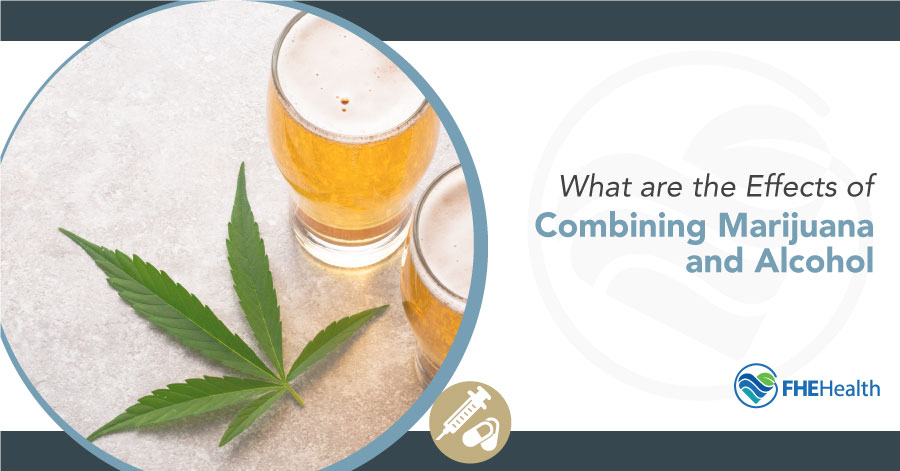
Marijuana and alcohol are among the most commonly used substances in the nation, with about two-thirds of those aged 18 and over consuming at least one alcoholic beverage in 2018 and a 2016 study showing that over 40 percent of adults have tried marijuana and one in eight use it regularly.
Used alone, either substance can be used in moderation without significant long-term effects. However, when you mix alcohol and marijuana, they can lead to unpleasant or even dangerous side effects.
The Effects of Alcohol
Wine, beer and spirits all contain alcohol, a chemical that results from fermenting fruit or cereals such as barley and rye. While a small amount of alcohol isn’t likely to cause harm, drinking too much—either on one occasion or over an extended period of time—can take a serious toll on the individual’s health.
Alcohol is rapidly absorbed into the blood through the stomach and the small intestine. Because it’s a depressant, it immediately affects the individual’s reaction time, coordination, vision and ability to accurately assess risks and read situations.
When someone drinks an excessive amount of alcohol, their brain function is impaired. Their blood vessels dilate, making them feel warm even as their body is losing heat. They’re also at a greater risk of making poor decisions, increasing their likelihood of getting behind the wheel of a car, getting into a fight or doing something unsafe.
The Effects of Marijuana
Tetrahydrocannabinol, or THC, is the main chemical compound in weed that creates a high sensation. Whether it’s used for medical or recreational reasons, it has a broad range of immediate and long-term effects on the body.
Within minutes of ingesting weed, the individual likely experiences a sense of relaxation or euphoria. Other common effects include heightened sensory perception (brighter colors, louder noises, etc.), an altered perception of time and an increased appetite.
While many experience pleasant effects from THC, some people experience panic, anxiety, fear or distrust especially if they’re inexperienced or take more than they can tolerate.
Over a long period of time, regular marijuana use can affect the individual’s physical and mental health. Long-term or heavy use can result in an impaired driving ability due to slow reaction times and poor judgment, symptoms of chronic bronchitis, increased respiratory infections and chronic disorders such as anxiety, depression or schizophrenia.






